in Thoreau’s Journal:
The very sunlight on the pale-brown-bleached fields is an interesting object these cold days. I naturally look toward it as to a wood fire. Not only different objects are presented to our attention at different seasons of the year, but we are in a frame of body and mind to appreciate different objects at different seasons. I see one thing when it is cold and another when it is warm.
We are interested at this season by the manifold ways in which the light is reflected to us. Ascending a little knoll covered with sweet fern, the sun appearing but little above the sweet fern, its light was reflected from a dense mass of the bare, downy twigs of this plant in a surprising manner which would not be believed, if described. In was quite like the sunlight reflected from grass and weeds covered with hoar frost. Yet in an ordinary light, these are but dark or dusky-looking with scarcely a noticeable downiness. But as I saw them, there was a perfect halo of light resting on the knoll. I moved to right or left. A myriad of surfaces are now prepared to reflect the light This is one of the hundred silvery lights of November. The setting sun, too, is reflected from windows more brightly than at any other season. “November lights” would be a theme for me.
Nature is moderate, and loves degrees. Winter is not all white and sere. Some trees are evergreen to cheer us and on the forest floor our eyes do not fall on sere brown leaves along, but some evergreen shrubs are placed there to relieve the eye. Mountain laurel, lamb kill, checkerberry, wintergreen, etc., keep up the semblance of summer still.

November 14, 2012: Reflections in the Bearcamp River, Sandwich, NH
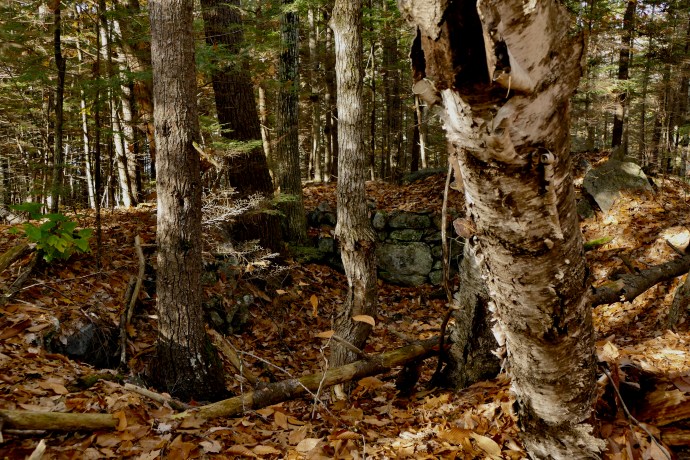
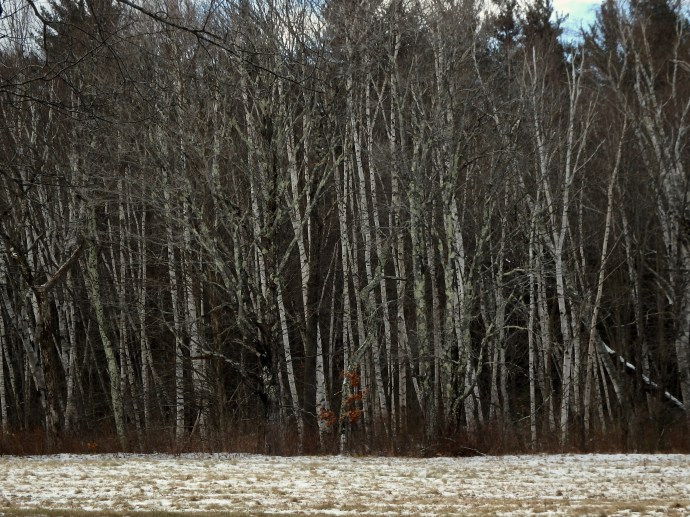






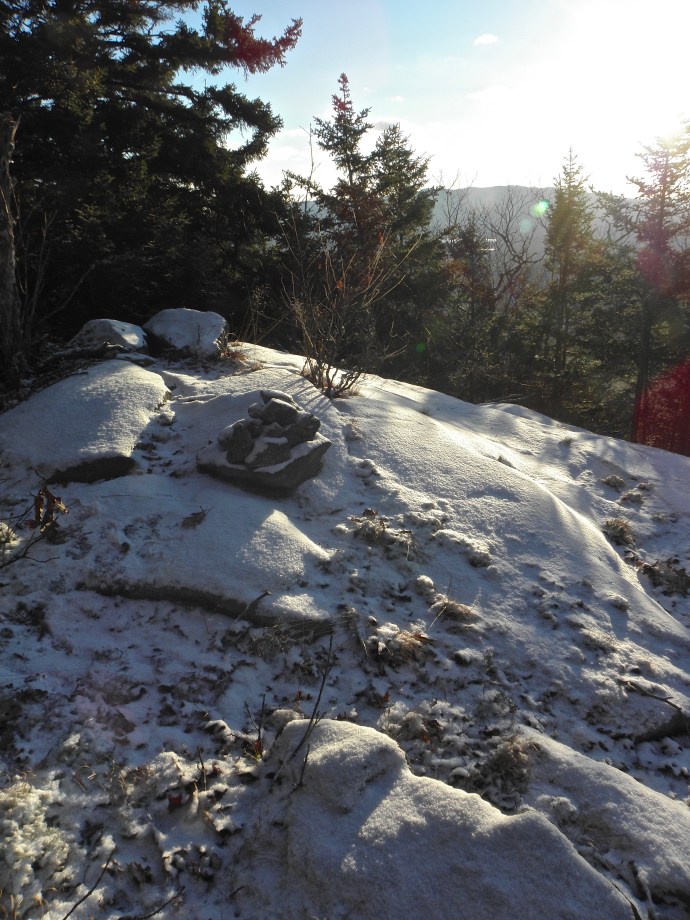
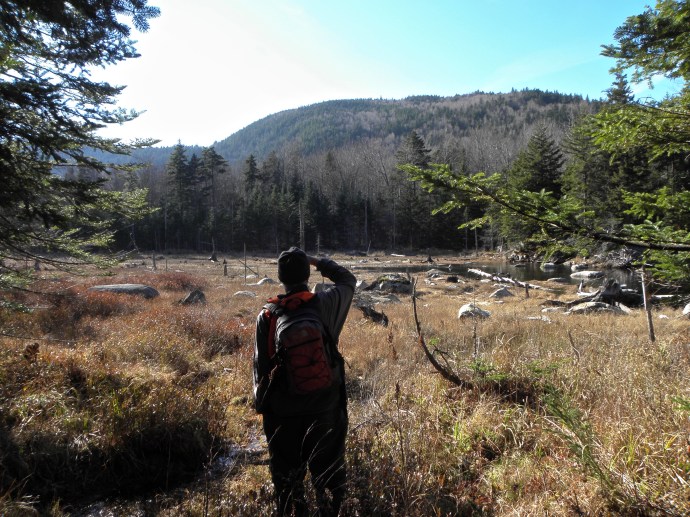



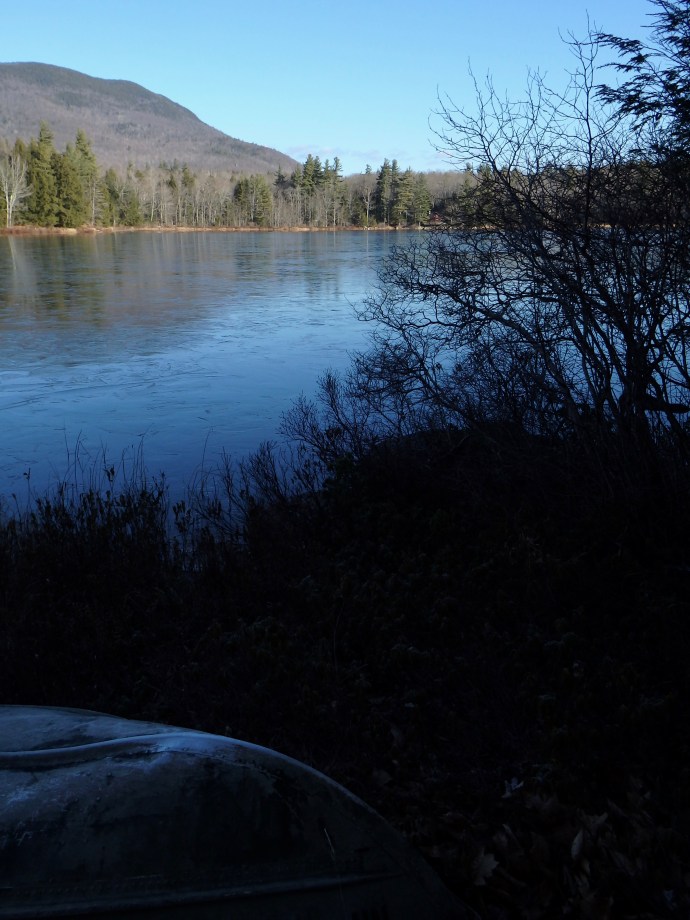


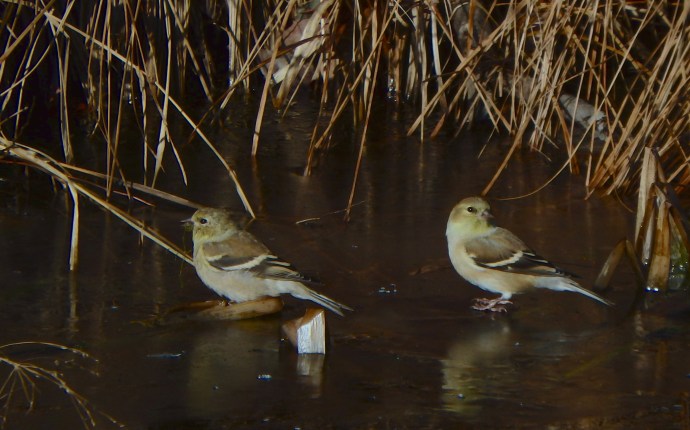
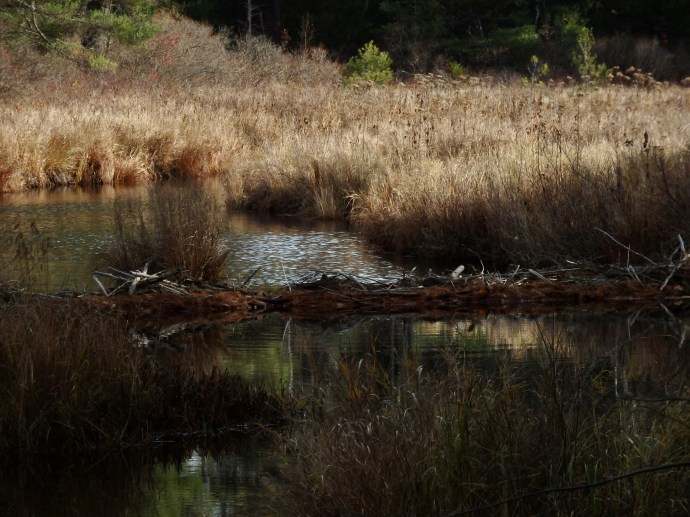

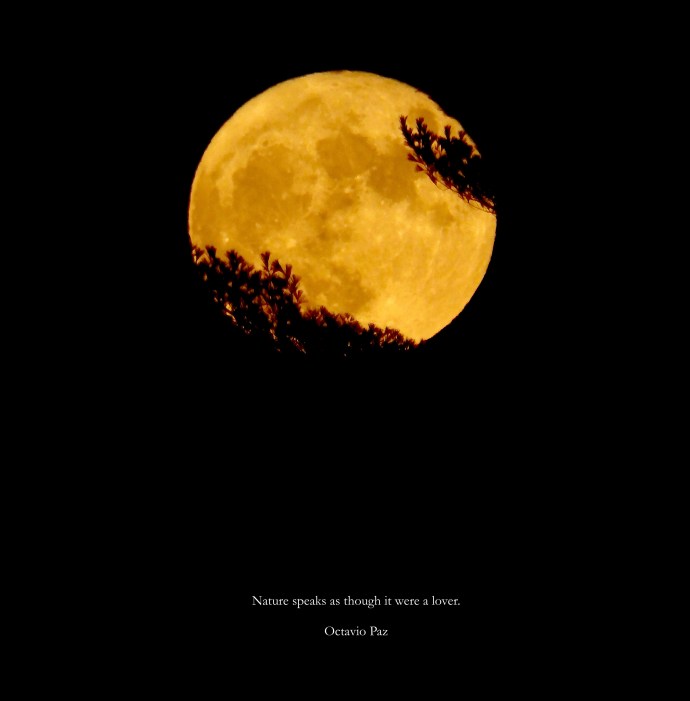
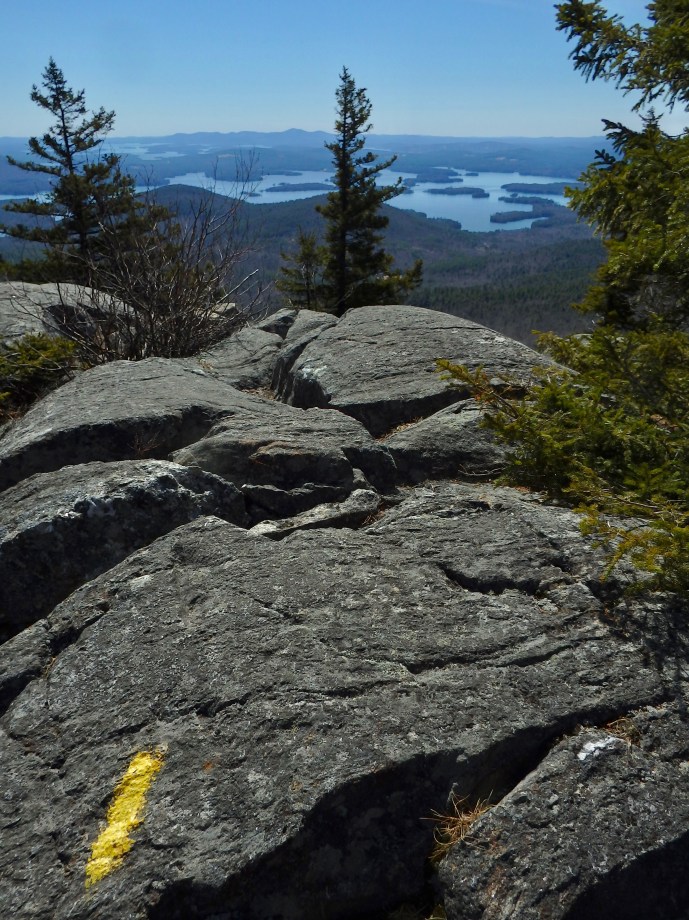




You must be logged in to post a comment.